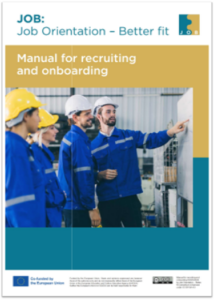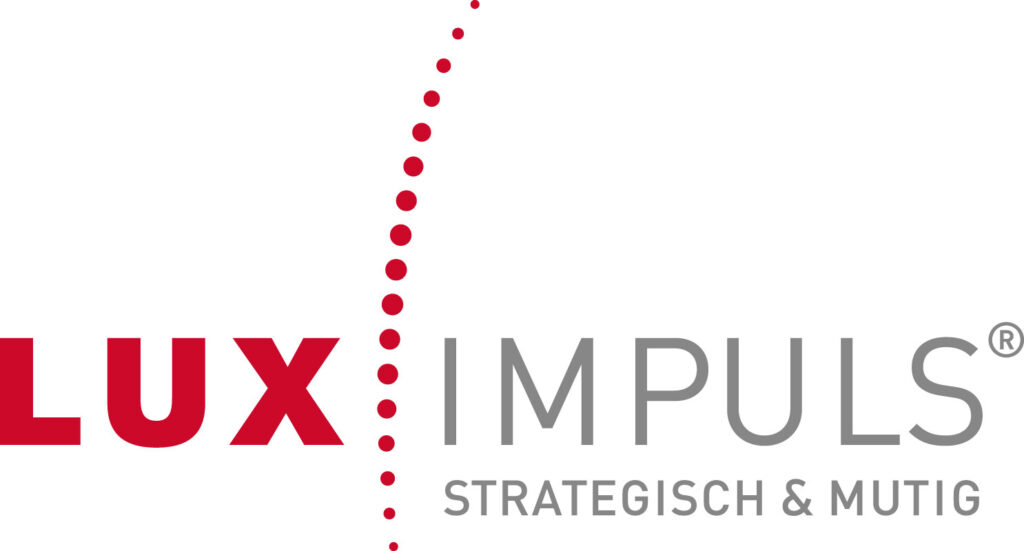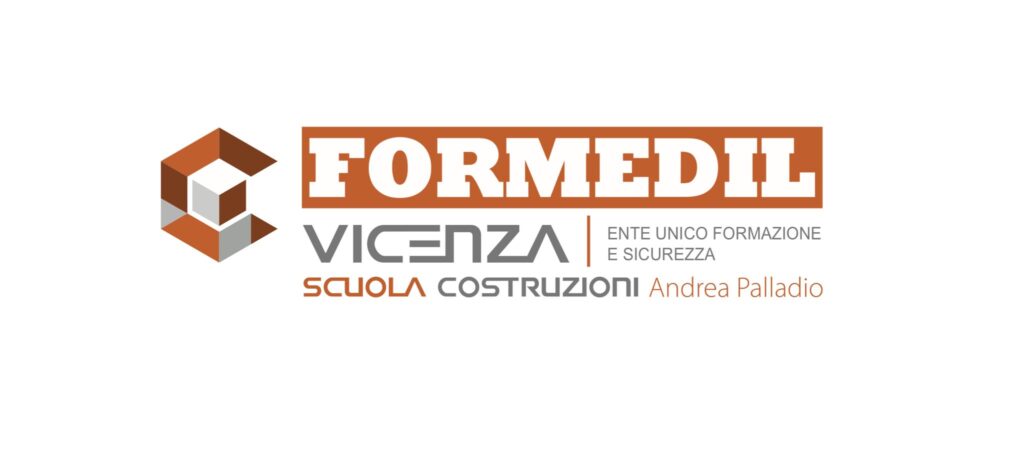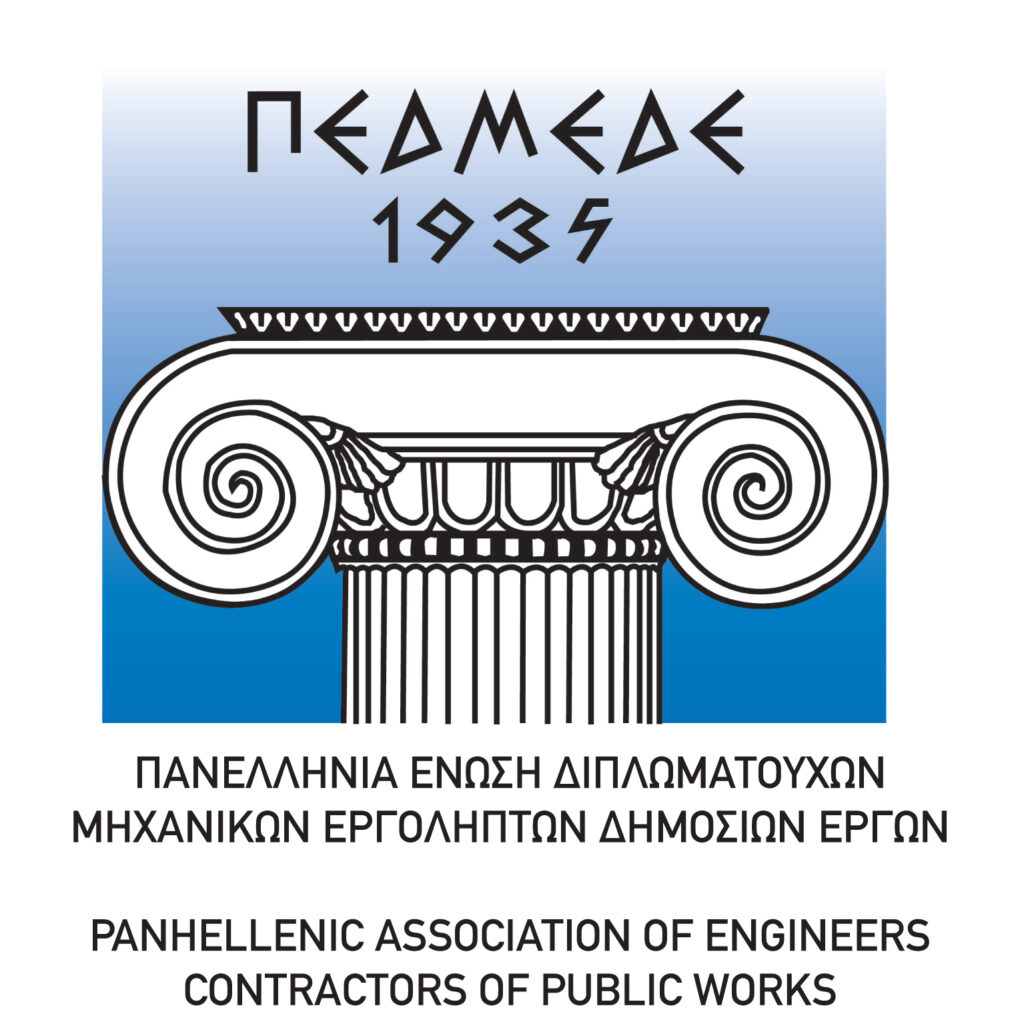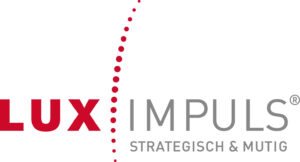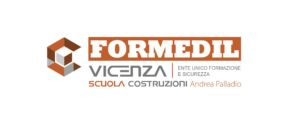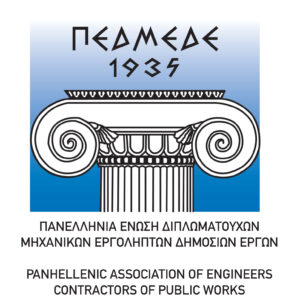JOB: Job Orientation – Better fit
JOB aims to prevent (training) dropouts by improving the match between applicants’ career interests and the actual requirements of training or workplaces. The project was co-funded by the European Union as part of the Erasmus+ programme and carried out by a total of five project partners from four different countries until the end of January 2026.
Since November 2024, associations, SMEs and educational institutions from Greece, Italy, Spain and Germany have been exchanging successful approaches and support services that can contribute to a successful recruitment and onboarding process.
The identified good practices, practical tools and external support services in the individual countries were compiled in a comprehensive manual with practical recommendations for companies. The handbook presents tools and tips that are easy to implement in everyday business life, showing companies how they can modernise their recruitment process and identify challenges at an early stage in order to adjust their pre- and onboarding processes in a targeted manner, thereby preventing training dropouts.

What is it all about?
The aim of job orientation is to prevent people dropping out of training.
How do we achieve it?
- Consideration of the individual needs
of all those involved in the employment of young people - Identifying challenges at an early stage
and specifically adapting onboarding - Developing ideas for close and long-term employee retention
What will we work on?
- Methodology for matching the competences of applicants with the requirements of the company
- A guideline with suitable recruiting and onboarding measures
- Training for companies on how to use these tools effectively in the recruiting and onboarding process
How do we achieve our goals?
At JOB, we focus on improving career guidance, professionalising recruitment and also incorporating the onboarding phase. This primarily involves providing individualised support for new trainees or new employees right from the start in order to compensate for deficits and ensure a successful transition into the team.
Methodology
In order to improve the matching between the applicants‘ professional interests and the companies’ expectations of the applicants, the companies‘ requirements are compared with the applicants’ skills. To this end, a methodology is being developed to match the applicants’ existing competences with the skills required by the companies.
The starting point is the companies’ requirements of the applicants. The focus is on qualifications, knowledge, skills, competences and soft skills that are important for the companies in the respective partner countries. Similarities and differences between the partner countries are identified. Potential analyses are used to compare the companies‘ expectations with the applicants’ skills. The aim is to develop a methodology that is easy for companies to implement.
Recruiting and onboarding guide
Tools that companies can use for recruitment and to support onboarding are assigned in line with the requirements of the companies. It is worked out how companies can adapt and use these tools according to their requirements and the prerequisites of the applicants.
Training for companies
In addition, training is being developed for the companies on how to use the tools as part of their recruitment and onboarding processes. The training is aimed at the company employees responsible for recruitment. They learn how to use the developed methods and tools in their companies in a targeted manner. The training is carried out by vocational training centres. VET centres and other interested parties can contact the project partners to obtain the materials.
Project partners
Lux Impuls specialises in vocational training, with a focus on the industrial and technical sector. We focus on vocational orientation, recruitment and, above all, the retention and personal development of trainees. We are involved in EU-funded Erasmus+ projects for vocational training, organise delegation trips by vocational training experts from abroad and contribute our expertise in the sub-Saharan region.
Founded in 1948, Scuola Costruzioni Vicenza Andrea Palladio is a leading educational institution specialising in construction training. Based in Vicenza, Italy, the school is recognised for its excellence in training highly qualified technicians and professionals who are able to meet the ever-evolving demands of the modern construction industry.
The school offers three-year vocational programmes leading to a qualification as a construction worker, followed by an optional fourth year leading to a diploma as a construction technician. With a strong emphasis on practical and innovative teaching methods, students gain both operational and construction skills.
The school maintains close relationships with industrial companies and offers valuable practical experience and strategic co-operation. Through active participation in international projects, it promotes innovation, sustainability and progress in the construction sector.
The Panhellenic Association of Engineers Contractors of Public Works (PEDMEDE), which has represented the Greek construction sector since its foundation in 1935, covers the entire spectrum of companies involved in the construction of public works. PEDMEDE is a key stakeholder in providing feedback and input from the perspective of the Greek construction labour market and is heavily involved in related EU projects and initiatives. PEDMEDE is a statutory member of FIEC, a member of EIC and a member of EDA and has seats in the steering committees of all organisations.
International Formation Center (IFC) is a company based in Madrid dedicated to international education, language training, and professional mobility. IFC leads and supports a wide range of initiatives, including Erasmus+ KA1 and KA2 projects, recruitment and integration of EU professionals in Germany, and customized German and Spanish courses. Through strong partnerships across Europe, IFC promotes intercultural learning, vocational development, and inclusive cooperation. Its work combines educational innovation with practical support—offering guidance from project design to evaluation, and helping individuals and institutions thrive in an international context.
The Westdeutscher Handwerkskammertag (www.whkt.de) with registered offices in Düsseldorf is the regional council representing and joining together the seven Chambers of Crafts and Skilled Trades in North Rhine Westphalia. The specialist topics prioritised by the WHKT include craft and trade & industry law, organisational matters and vocational training and schools’ policy. In addition, the WHKT deals with economic observations and statistics, expert consultants, planning and environmental matters, Europe, multimedia, design and programming and PR work.
News
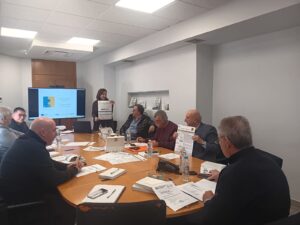
Successful final Workshops in Italy and Greece
In January 2026, the project concluded with two final workshops in Italy and Greece, bringing together 25 participants to discuss practical approaches to recruitment, onboarding and the involvement of young people. The events generated valuable feedback and confirmed the relevance and applicability of the project’s tools for everyday practice.

Manual and podcast published: Tips and tools for attracting, selecting and retaining trainees
The project presents these best practices, external support measures in the participating countries and various low-threshold, practical tools in its final project result, a comprehensive handbook with concrete recommendations for action.

Publication of the fourth project result: Report about useful Onboarding Tools
The report emphasizes the relevance of a structured onboarding process to systematically integre new employees into a company to make the transition as smooth as possible so that new team members quickly feel comfortable, understand the corporate culture, and can effectively take on their tasks.
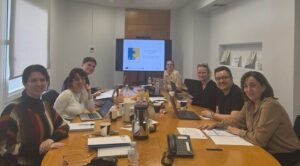
Third transnational partnermeeting in Athens
The third and final partner meeting in Athens focused on planning the upcoming workshops and developing the manual.
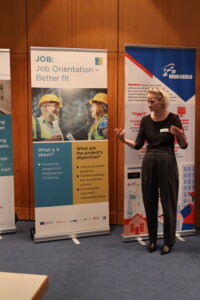
ERASMUS+ DAYS 2025 in Germany
Two project partners presented JOB during the ERASMUS+ DAYS 2025 in Germany.

Third project result: Guideline for useful recruiting instruments published
The report presents new trends in construction recruitment, similarities and differences in recruitment tools across the partner countries and how companies can use digital tools to attract young talents.

Guideline for matching requirements of companies with skills and competences of applicants published
The guideline presents methodologies, specific materials and free-to-use tools to support companies in finding suitable applicants and retaining them in their organisations.
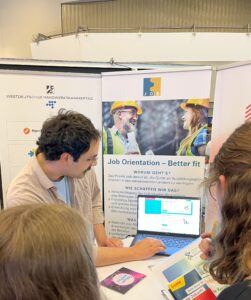
Fair for trainees in Erkelenz 2025
Direct contact to young people and practical insight in job fairs as recruitment tool.
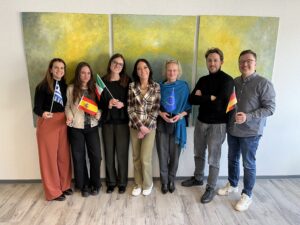
Succesfull second partnermeeting in Dusseldorf
The WHKT invited all project partners to its premises.

First project result published!
The JOB project published the report on the requirements of companies.
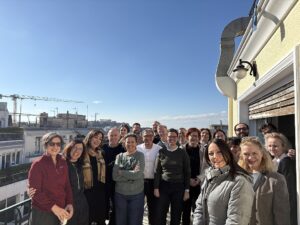
Presentation of JOB at the CPD Meeting in Athens
The JOB coordinator LUX presented the project to various European stakeholders in Athens.
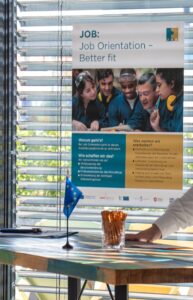
ERASMUS+ Days 2024
Even before the official project launch, the JOB project went public during an Erasmus+ Days event.
This project has been funded with support from the European Commission. This publication reflects the views only of the author, and the Commission cannot be held responsible for any use which may be made of the information contained therein.

